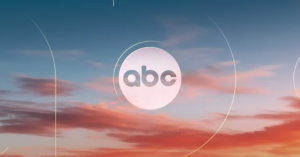A former Federal Reserve official warned that the U.S. could face a “double-dip” recession if the coronavirus outbreak is not managed well and there is no economic stimulus from the government. The comments from Dennis Lockhart, the Atlanta Fed president from 2007 to 2017, come after the Labor Department reported another 1 million Americans filed for unemployment benefits for the first time this past week. Talks in Washington on the next coronavirus stimulus package, which could include another round of stimulus checks sent directly to Americans, have come to a stalemate, though.
Although there was a brief recovery in the early summer when businesses began to reopen, Lockheart said there could be another economic contraction while the pandemic continues. “I continue to believe that looking forward you have to consider a range of scenarios and among those scenarios would be, obviously, a pessimistic one and that could be a double-dip,” Lockheart told CNBC’s Squawk Box Asia Friday. “If things go badly with the management of the virus and there’s more cascading — which (Thursday’s) numbers of initial claims might suggest — then yes, it’s possible we have a double-dip. I don’t think that’s probably the base case, but I think it’s still possible.”
Videos by PopCulture.com
On Thursday, the Labor Department reported that just over 1 million Americans filed for unemployment benefits during the week ending on Aug. 22, reports CNBC. That was down from 1.104 million the previous week. It was the 22nd time in the past 23 weeks that 1 million or more Americans filed for unemployment for the first time. It was also the second consecutive week that initial claims were over 1 million. Since the pandemic began, more than 58 million Americans have filed for unemployment. The U.S. economy dropped by 31.7% on an annualized basis during the second quarter of 2020, the Commerce Department said, which is the worst quarterly drop in GDP on record.
According to Lockheart, the U.S. economy needs more financial support since the Fed plans to keep interest rates near zero for “quite some time into the future.” “If there’s going to be an effective effort to really ward off a worst-case scenario, particularly for portions of the American public that are most vulnerable, then it’s going to come from the fiscal side,” Lockheart said, adding that he agrees with Jay Powell that “fiscal action is the most appropriate economic action at this time and we need it.”
Congress has been at an impasse on what the next coronavirus stimulus package should look like since negotiations between Democratic leaders and the White House broke down earlier this month. House Speaker Nancy Pelosi spoke with White House chief of staff Mark Meadows on Thursday, but they did not reach any deal. “Democrats are willing to resume negotiations once Republicans start to take this process seriously,” Pelosi said Thursday. “Lives, livelihoods and the life of our democracy are at stake.”









